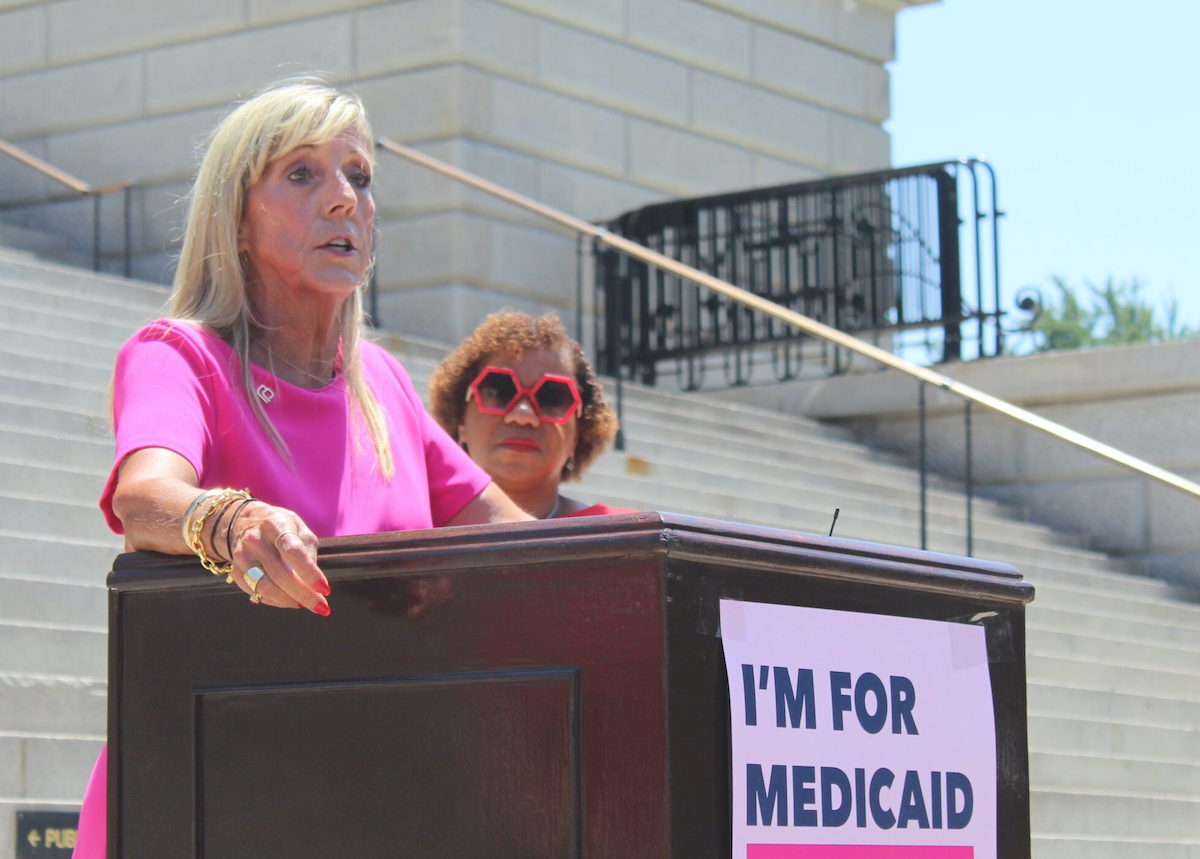Order by SC Supreme Court pauses payments legislators were already receiving on top of proposed increase
By Skylar Laird
SCDailyGazette.com
COLUMBIA — State legislators will get a pay cut following a state Supreme Court order that halted so-called “in-district compensation” payments. How long it will last depends on the justices.
The Wednesday, June 25, order came in response to a legal challenge over a $1,500 monthly raise legislators included in the state budget.
The $1,000 legislators have been receiving each month since 1995 under that same budget clause became collateral damage in the pause. If the state’s high court sides with the state senator questioning the constitutionality of the raise, the pay could go away altogether, cutting legislators’ incomes by $12,000 per year.
The change would apply only to the money meant to pay for duties outside the Statehouse. Legislators would still receive their annual salary of $10,400 and stipends for food and lodging during session, which are currently $240 per day.
The order instructed the state treasurer to stop “distributing any funds” under the clause included in the state budget that goes into effect Tuesday.
Because legislators rewrote the existing clause instead of adding a new one with the increased amount, that affected the entire sum they would have received.
“In light of the Court’s order, I want to inform you that, at a minimum, no in-district payments will be made on July 16 or August 16,” Senate President Thomas Alexander wrote in a letter to senators Wednesday. “To be specific, this amount includes both the prior $1,000 as well as the $1,500 increase. Any future payments will depend on further action by the Supreme Court in this matter.”
Representatives received a similar notification from the House clerk, emphasizing that the decision will affect the entire monthly payment, not just the raise.
Even the 44 Republicans in both chambers who turned down the increase will lose out on their normal $1,000 each month.
That could be the case for the foreseeable future, said Senate Majority Leader Shane Massey, who’s among the Republicans who opted out of the raise.
The court order set a deadline of Sept. 4 for legal filings, though it could take longer for justices to come to a decision.
If the justices decide the raise is unconstitutional, they can’t keep the original payments in play without rewriting a piece of the state budget, a move that would go beyond the court’s authority, the Edgefield Republican said.
Legislators could reinstate the original amount, but getting the votes to do so during an election year for the House, as 2026 will be, is unlikely because of the potential campaign fodder it could give opponents, Massey said.
In that case, legislators would go at least a year and a half with the lowest salary they’ve had in decades.
“I don’t think we can fix it,” Massey said.
That wasn’t the intention, said Sen. Wes Climer, who is challenging the raise in court. He didn’t have a problem with the in-district compensation itself, he added, but rather with legislators increasing it during a non-election year.
“It’s unfortunate,” the Rock Hill Republican said. “It’s not the desired outcome. But the fault for this outcome lies with those who tried to cheat. That outcome is still better than the Legislature appropriating itself the people’s money in real time.”
Climer, represented by former senator and Columbia attorney Dick Harpootlian, has argued in court filings that the raise violates a provision in the state constitution that bars legislators from increasing their own “per diem.”
When the 1890 constitution that still governs the state went into effect, that per diem was the only payment legislators received, so it effectively covered all of their income, Harpootlian has argued in court filings.
Attorneys for the House and Senate have argued the constitutional clause barring legislators from raising their own per diem applies only to the subsistence stipends meant to cover meals and lodging. The in-district compensation qualifies as a reimbursement, even though legislators don’t have to report how they spent the money, attorneys for both chambers have argued in legal filings.
Senators who voted both for and against the raise are frustrated knowing they’re getting at least a temporary pay cut, Massey said.
The last time legislators tried to increase their in-district compensation, in 2014, they did so in a separate budget clause that would have given legislators the option of an extra $1,000 per month. Then-Gov. Nikki Haley vetoed the raise, but because it was a separate part of the budget, legislators’ existing pay remained in place.
Losing a portion of what little legislators make “discourages people who don’t have individual wealth or own their own business from running for office,” said Rep. John King, a longtime supporter of increasing legislators’ pay.
The Rock Hill Democrat used his $1,000 each month to help pay for extra staff at the funeral home he runs so he could spend more time helping constituents, he said. He’ll be able to make up the difference by paying out of pocket, but others may not, he said.
Conversations around increasing pay to encourage more people to run for office are worthwhile, Massey said. Having people from different backgrounds often leads to more points of view on issues and, therefore, better legislation, he said.
“Having a pay decrease certainly doesn’t help that,” Massey said.
But legislators went about getting a raise the wrong way by adding it to the state budget instead of going through a committee process that would have included vetting and public input, he said. His opposition to how the raise was approved is why he turned it down.
Going through the normal committee process probably would have flagged the constitutional question and allowed legislators to write the law in a way that wouldn’t put their current pay in jeopardy, he said.
“There are consequences to doing it this way,” Massey said.
Skylar Laird covers the South Carolina Legislature and criminal justice issues. Originally from Missouri, she previously worked for The Post and Courier’s Columbia bureau. S.C. Daily Gazette is part of States Newsroom, the nation’s largest state-focused nonprofit news organization.










